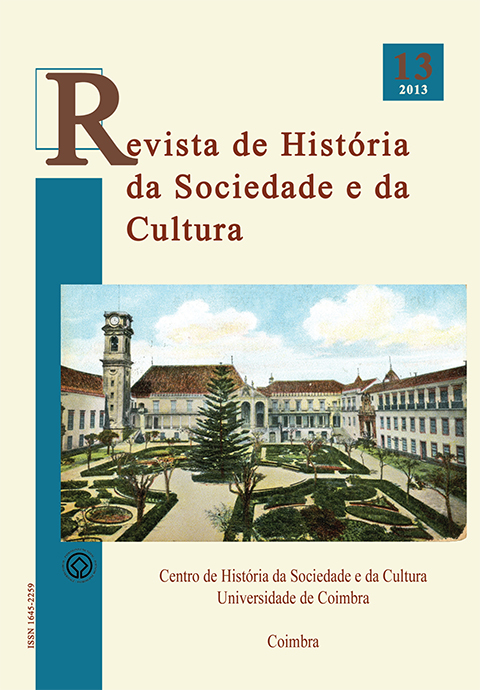Utopia e Profetismo no Século das Luzes. D. José (1761-1788), Príncipe do Brasil, Imperador do Mundo
DOI:
https://doi.org/10.14195/1645-2259_13_13Keywords:
Prince D. José, Ourique, Fifth Empire, EnlightenmentAbstract
This essay is based on a late seventeenth manuscript, the Fidelidade Portuguesa, which can be found at the Biblioteca da Ajuda. It was intended to be offered to the then heir to the Portuguese throne, Prince José. The main objective of this text it to stress how the "mythical constellation" of the origins of the Portuguese monarchy (the miraculous "appearance" of Christ to the first king at the battlefield against the Moors and the "Oath" of Afonso Henriques) and its future imperial destiny as the Christian Fifth Empire are still central in the political and historical discourse in the Enlightenment. Based upon some medieval legends, the "miracle" of the appearance of Christ evolved and became, during the sixteenth century, fully integrated in the political discourse of the Portuguese Crown. Finally, in the context of the loss of independence to Spain in 1580, this mythical discourse became a messianic believe, where the future Christian Fifth Empire with spiritual and temporal power, set to take its place in a new era, would become a reality with the Portuguese monarchy. Dedicated to the prince who would (but didn't) become king, we can conclude that this ideological perspective is not exceptional, but the vehicle of a persistent ideological believe in the rational eighteenth century. And more: it was, decisively, the eighteenth century, as this manuscript abundantly shows, that transmitted this myth of origins to the nineteenth century, when it was the object of the debate in which the great Portuguese historian Alexandre Herculano actively participated.
Downloads
Downloads
Published
Issue
Section
License

This work is licensed under a Creative Commons Attribution 4.0 International License.
Authors retain copyright and grant the journal right of first publication with the work simultaneously licensed under a Creative Commons Attribution License that allows sharing the work with recognition of authorship and initial publication in Antropologia Portuguesa journal.











